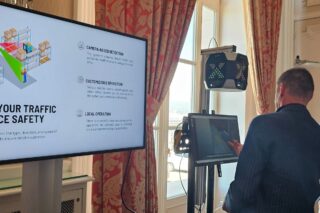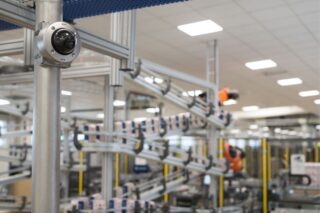The emergence of advanced language models like ChatGPT has sparked debates over potential risks associated with generative AI technology. While some consider AI-powered products as a boost to efficiency and productivity, others worry about the impact on cybersecurity, search engine ranking, and profitability, according to data and analytics firm GlobalData.
An analysis of GlobalData’s Company Filings Analytics Database reveals that ChatGPT has prompted cybersecurity concerns among experts.
According to Misa Singh, Business Fundamentals Analyst at GlobalData,
“Since ChatGPT’s release, cybersecurity professionals have been concerned about the risks related to cybercrimes/threats. Additionally, internet service provider companies believe that ChatGPT might impact their search engine ranking, leading to decreased traffic on their platform.”
Cybersecurity & Search Engine Concerns
Cybersecurity firm Darktrace maintains that ChatGPT does not ease the barriers to entry for cyber attackers, but acknowledges it has contributed to the sophistication of phishing emails, allowing cybercriminals to craft more targeted and effective attacks.
Cloud-based software company Salesforce Inc expressed concerns about the potential risks associated with generative AI content creation. The company emphasized the need to invest in the development of datasets, machine learning models, and testing systems to ensure accuracy and minimize unintended and harmful impacts. The costs associated with these processes are high, and they may affect a company’s profitability, GlobalData predicts.
Other tech giants like Microsoft and Google have announced plans to integrate AI models into their products, creating concerns for companies such as Baidu Inc and Yandex NV. Baidu recognizes the need to keep up with technological advancements and commercialization to ensure success. Yandex NV views the development of new language models as a risk that may require significant computational power and training knowledge to create, as well as reorganizing tools and altering the capacity to monetize ad-based products.
SimilarWeb Ltd believes the expansion of ChatGPT may obfuscate some of the user’s search activity, reducing the amount of digital activity available for analysis using current data collection methods.
For NerdWallet, Inc., AI-assisted technologies may affect the relevance of search engines, declining their ranking and impacting financial results if companies are unable to adapt their content strategies to a changing web search landscape.
The Godfather of AI Resigns From Google
GlobalData’s analysis regarding the potential risks associated with generative AI technology comes at a significant time. This week saw the resignation of Geoffrey Hinton, considered the godfather of AI, from Google after more than a decade at the company.
In a statement to the New York Times, the AI specialist warned about the dangers of the technologies he helped build. At Google, his team created a neural network that analyzed thousands of photos to identify common objects like dogs, cats, and flowers. This breakthrough led to the development of models such as ChatGPT and Google Bard.
Hinton’s concerns escalated when Microsoft released its new Bing search engine, which incorporates generative AI. This put Google on high alert as it faced a serious competitor, prompting the company to ramp up its efforts to retaliate, leading to a frenzied race in the field.
He fears that such fierce competition may become impossible to stop, leading to a proliferation of manipulated images and texts, making it impossible to discern what is true from what is fake.
In an interview with the New York Times, he said:
“The idea that this stuff could actually get smarter than people — a few people believed that. But most people thought it was way off. And I thought it was way off. I thought it was 30 to 50 years or even longer away. Obviously, I no longer think that.”
On Twitter, he added:
I now predict 5 to 20 years but without much confidence. We live in very uncertain times. It's possible that I am totally wrong about digital intelligence overtaking us. Nobody really knows which is why we should worry now.
— Geoffrey Hinton (@geoffreyhinton) May 3, 2023









